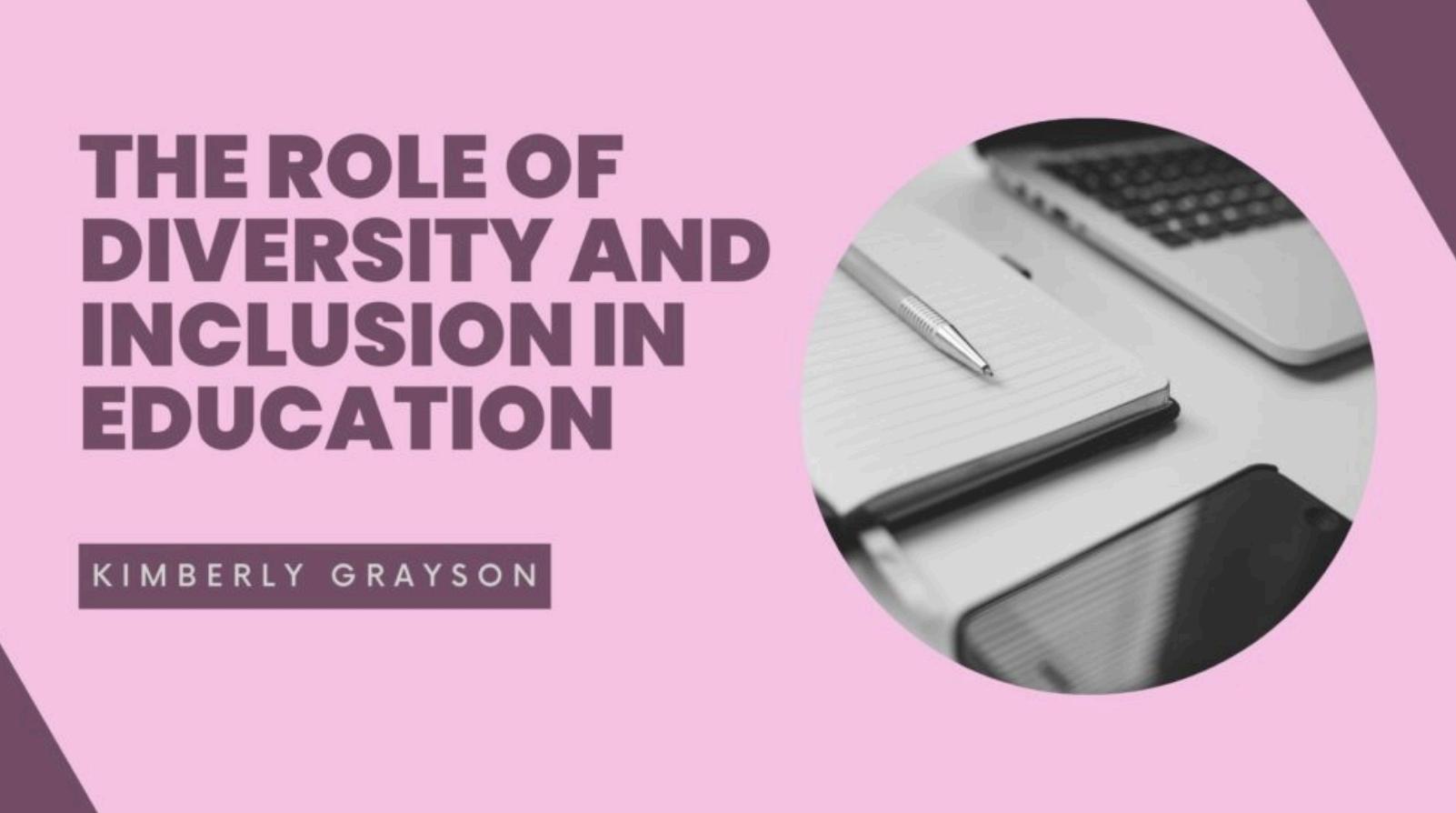
Diversity and inclusion are not just buzzwords; they are fundamental principles that shape the educational landscape and contribute to the holistic development of students. In today’s interconnected world, embracing diversity and fostering inclusivity in education is more critical than ever This blog explores the multifaceted role of diversity and inclusion in education and its profound impact on students, educators, and society.
Diversity encompasses the myriad differences among individuals, including but not limited to race, ethnicity, culture, religion, gender, sexual orientation, socioeconomic status, and abilities. Conversely, inclusion refers to creating an environment where every individual feels valued, respected, and supported, regardless of their differences. Diversity and inclusion promote equity and fairness, ensuring that all students have equal opportunities to thrive academically, socially, and emotionally
Fostering a Sense of Belonging
One of the primary benefits of embracing diversity and inclusion in education is fostering a sense of belonging among students. When they see themselves reflected in the curriculum, textbooks, and classroom discussions, students feel validated and empowered. Additionally, creating an inclusive learning environment where diverse perspectives are valued encourages students to engage actively in their education, leading to improved academic performance and higher levels of achievement.
Enhancing Cultural Competence
Exposure to diverse cultures and perspectives enriches the educational experience and enhances students’ cultural competence. By learning about different customs, traditions, languages, and worldviews, students develop empathy, tolerance, and appreciation for diversity Culturally competent individuals are better equipped to navigate the complexities of an increasingly globalized
society, communicate effectively across cultural boundaries, and collaborate with people from diverse backgrounds.
Challenging Stereotypes and Biases
Education plays a pivotal role in challenging stereotypes and biases that perpetuate discrimination and inequality. By promoting inclusivity and celebrating diversity, educators can create opportunities for students to confront their biases, critically examine societal norms, and develop a more nuanced understanding of social justice issues. Through open dialogue, respectful discourse, and exposure to diverse perspectives, students learn to recognize and challenge injustice, fostering a more equitable and inclusive society.
Preparing Students for the Real World
In today’s multicultural and interconnected world, success often depends on one’s ability to navigate diverse environments and work effectively with people from different backgrounds. By incorporating diversity and inclusion into the educational curriculum, schools prepare students for the realities of the workforce and society. When they are equipped with cultural competence, empathy, and critical thinking skills, students are better prepared to thrive in diverse workplaces, collaborate with diverse teams, and contribute positively to their communities.
Empowering Marginalized Voices
Embracing diversity and inclusion in education is crucial for empowering marginalized voices and addressing systemic inequalities. Educators can create a more just and inclusive society by amplifying the voices of underrepresented groups, providing equitable access to resources and opportunities, and dismantling barriers to success. When students from marginalized backgrounds see themselves represented and valued in the educational system, they are more likely to succeed academically and pursue their aspirations.
Conclusion
Diversity and inclusion are moral imperatives and essential components of quality education. By embracing diversity, fostering inclusivity, and challenging biases, educators can create a learning environment where all students feel valued, respected, and empowered to reach their full potential. As we strive for educational equity and social justice, let us prioritize diversity and inclusion in education to create a more equitable, inclusive, and prosperous society for future generations.
